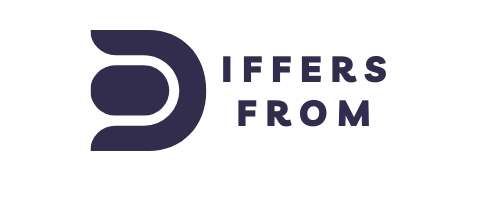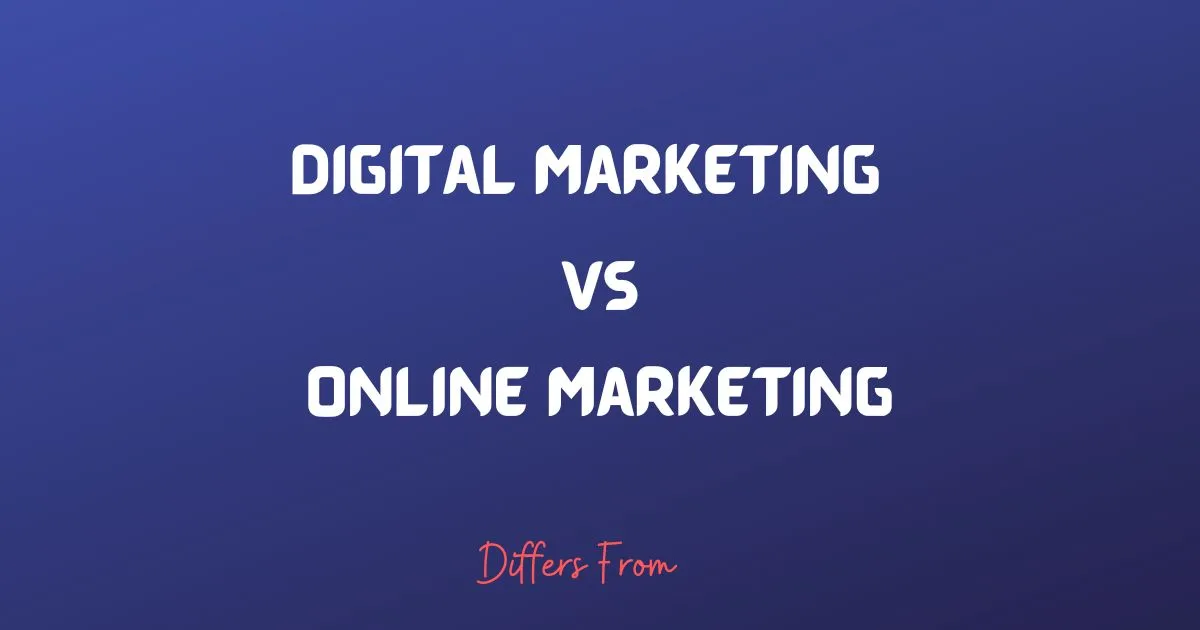In today’s fast-paced digital landscape, where businesses strive to make their mark in the online realm, understanding the nuances between “Digital Marketing” and “Online Marketing” is crucial. These terms are often used interchangeably, but they represent distinct strategies with unique scopes and methodologies. So, let’s embark on a journey to unravel the captivating world of marketing in the digital age and explore the fundamental Difference between Digital Marketing and Online Marketing.
What is digital marketing?
Digital marketing refers to the use of digital technologies, channels, and strategies to promote products, services, or brands.
It encompasses various online and offline activities such as website optimization, social media marketing, email campaigns, search engine advertising, and more, with the aim of reaching and engaging a targeted audience in the digital space.
An example of digital marketing could be Ranking Expert who provides digital marketing services in London.
What is online marketing?
Online marketing specifically focuses on promoting products, services, or brands through internet-based channels and platforms.
It involves strategies such as search engine marketing (SEM), social media advertising, display advertising, and email marketing, among others.
Online marketing primarily leverages the power of the internet to reach and engage a targeted audience, driving traffic, leads, and conversions for businesses in the online realm.
Difference between Digital Marketing and Online Marketing
| Digital Marketing | Online Marketing | |
| Scope | Encompasses a wider range of marketing activities, both online and offline. | Primarily focuses on marketing efforts conducted online. |
| Channels | Utilizes multiple channels such as websites, social media, email, mobile apps, search engines, etc. | Relies primarily on online channels like websites, social media platforms, search engines, etc. |
| Integration | Can be seamlessly integrated with offline marketing efforts. | Has limited integration with offline marketing efforts. |
| Strategies | Involves a wide range of strategies like content marketing, social media marketing, SEO, email marketing, etc. | Emphasizes specific online strategies like SEM, display advertising, social media advertising, etc. |
| Targeting and Personalization | Offers extensive opportunities for targeted marketing and personalized messaging. | Offers targeting options but with a narrower focus and limited personalization. |
| Measurement | Provides extensive measurement and analytics capabilities, tracking various metrics and KPIs. | Measures online-specific metrics and KPIs like click-through rates, conversion rates, etc. |
| User Experience | Focuses on providing a holistic customer experience, bridging the gap between online and offline interactions. | Concentrates on providing a seamless online user experience and engagement. |
What is the Difference between Digital Marketing and Online Marketing?
Digital Marketing vs Online Marketing
Digital marketing and online marketing are closely related but have distinct differences. Let’s delve into a detailed comparison between the two:
Scope
Digital marketing: It encompasses a broader range of marketing activities, both online and offline, utilizing various digital technologies and channels.
Online marketing: It specifically focuses on marketing efforts conducted online, primarily through internet-based channels and platforms.
Channels and Platforms
Digital marketing: It leverages multiple channels such as websites, social media, email, mobile apps, search engines, podcasts, video platforms, and more. It encompasses both online and offline platforms.
Online marketing: It primarily relies on online channels like websites, social media platforms, search engines, online advertising networks, and email marketing platforms.
Strategies and Tactics
Digital marketing: It employs a wide range of strategies, including content marketing, social media marketing, search engine optimization (SEO), email marketing, influencer marketing, viral marketing, and more. It incorporates both organic (unpaid) and paid advertising techniques.
Online marketing: It focuses on specific online strategies such as search engine marketing (SEM), display advertising, social media advertising, remarketing, affiliate marketing, and online PR. It primarily emphasizes paid advertising methods.
Targeting and Personalization
Digital marketing: It offers extensive opportunities for targeted marketing by leveraging data and analytics. It enables personalized messaging and content based on user behavior, demographics, interests, and preferences.
Online marketing: While it also allows for targeting, the focus is narrower compared to digital marketing. Personalization options may be limited to geographic location, online behavior, or user segments.
Offline Integration
Digital marketing: It can be seamlessly integrated with offline marketing efforts, allowing businesses to bridge the gap between online and offline customer experiences. For example, using QR codes in print ads or linking offline events to online campaigns.
Online marketing: It primarily focuses on online activities and has limited integration with offline marketing efforts.
Measurement and Analytics
Digital marketing: It provides extensive measurement and analytics capabilities, allowing businesses to track various metrics and key performance indicators (KPIs) across different channels and platforms. This enables data-driven decision-making and optimization.
Online marketing: While it also offers measurement and analytics capabilities, the focus is mainly on online-specific metrics and KPIs, such as click-through rates, conversion rates, cost per acquisition (CPA), return on ad spend (ROAS), and website analytics.
Interesting facts about digital marketing and online marketing
- Mobile dominates digital marketing: With the rapid rise of smartphones, mobile devices have become the primary platform for digital marketing.
- Mobile marketing strategies such as mobile apps, mobile advertising, and responsive web design are crucial for reaching and engaging audiences.
- Video content is king: Video has emerged as a powerful and popular form of digital marketing.
- It has higher engagement rates compared to other content formats and is widely used across platforms like social media, websites, and video-sharing platforms.
- Video marketing helps businesses communicate their message effectively and capture the audience’s attention.
- Personalization drives results: Personalized marketing experiences based on user preferences and behavior have proven to be highly effective.
- Influencer marketing is rising: influencer marketing has become a significant aspect of digital marketing strategies.
- Leveraging the popularity and credibility of influencers in specific niches or industries helps brands reach their target audience in a more authentic and relatable manner.
- Online marketing is cost-effective: Compared to traditional marketing methods, online marketing often offers a more cost-effective solution.
- Advertising on digital platforms, such as search engines or social media, can be tailored to fit different budgets and provides options for precise targeting, minimizing wasted ad spend.
- Online marketing allows for global reach: With the internet’s global nature, online marketing enables businesses to reach a worldwide audience.
- Through various online channels and platforms, businesses can expand their reach and target specific demographics, regardless of geographical boundaries.
- Real-time tracking and analytics: Online marketing provides real-time tracking and analytics tools, allowing businesses to monitor the performance of their marketing campaigns.
- Metrics such as impressions, clicks, conversions, and engagement rates can be measured, providing valuable insights for optimization and decision-making.
- Remarketing boosts conversions: Remarketing, also known as retargeting, is a powerful online marketing technique.
- It involves targeting ads to users who have previously interacted with a website or shown interest in a product or service. Remarketing can help businesses re-engage potential customers and improve conversion rates.
Conclusion
Digital marketing encompasses a broader range of marketing activities, both online and offline, utilizing digital technologies. Online marketing specifically focuses on marketing efforts conducted online through internet-based channels and platforms.

